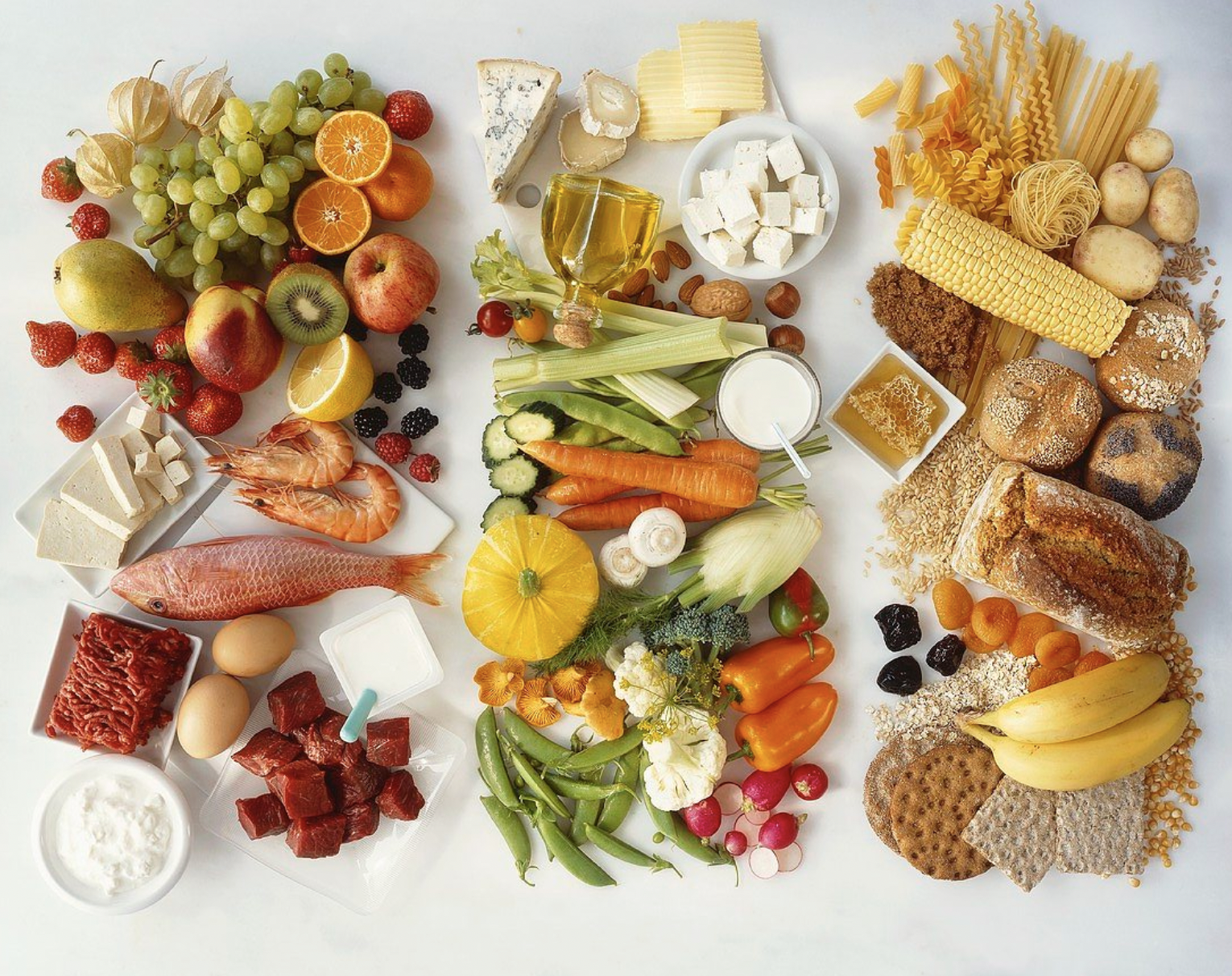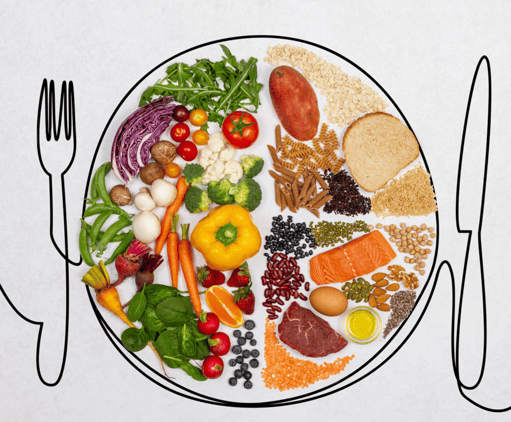Nutrition basics: understand the secrets to a healthy diet!

Understanding the basics of nutrition is fundamental to achieving and maintaining a healthy lifestyle. It acts as fuel for the body, providing the essential nutrients needed for cellular processes, tissue repair, and growth. Read on to take your first steps towards a healthy lifestyle!Moreover, a balanced diet rich in nutrients plays a crucial role in disease prevention, helping to ward off conditions such as obesity, diabetes, heart disease, and certain types of cancer. Proper nutrition is instrumental in weight management, cognitive function, sustained energy levels, and emotional well-being, so it plays an absolutely essential part in your health. By making informed dietary choices, you can pave the way to a happier and more fulfilling life.
Understanding Nutrition Basics
When you're trying to understand nutrition basics, the first thing to look at is your macro nutrients (carbohydrates, proteins, fats) and micronutrients (vitamins, minerals). Additionally, portion control, balanced meals, and hydration play critical roles.
Macronutrients:
Carbohydrates: Carbohydrates are the body's primary source of energy. They are found in foods like grains, fruits, vegetables, and legumes. Complex carbohydrates, such as whole grains and vegetables, provide sustained energy due to their slower digestion and absorption, while simple carbohydrates, like sugars found in sweets and processed foods, offer quick but short-lived energy spikes. Everybody loves carbs because they're delicious! But eating too much can make you feel not so energetic after the sugar wears off.
Proteins: Proteins are essential for building and repairing tissues, as well as for various physiological functions in the body. Sources of protein include meat, poultry, fish, eggs, dairy products, legumes, nuts, and seeds. Consuming a variety of protein sources ensures adequate intake of essential amino acids, the building blocks of protein.
Fats: Fats are vital for maintaining cell structure, insulating organs, and regulating body temperature. Healthy sources of fats include avocados, nuts, seeds, olive oil, fatty fish, and coconut oil. It's important to prioritize unsaturated fats, such as monounsaturated and polyunsaturated fats, while limiting intake of saturated and trans fats to support heart health.
Micronutrients:
Vitamins: Vitamins are essential micronutrients that play various roles in metabolism, immune function, and overall health. They can be found in a wide range of foods, including fruits, vegetables, whole grains, dairy products, and lean proteins. Examples of vitamins include vitamin A, vitamin C, vitamin D, vitamin E, and the B vitamins.
Minerals: Minerals are inorganic nutrients necessary for maintaining fluid balance, forming bones and teeth, and supporting muscle function and nerve transmission. Sources of minerals include fruits, vegetables, whole grains, dairy products, meat, and seafood. Common minerals include calcium, iron, magnesium, potassium, and zinc.
Portion Control and Balanced Meals:
Another essential step in understanding nutrition basics is portion control. This involves managing the size of food servings to ensure that calorie intake aligns with individual energy needs. It's essential to balance macronutrients in meals to provide a mix of carbohydrates, proteins, and fats, along with fibre-rich foods like fruits, vegetables, and whole grains.
For a balanced meal, roughly half of your plate should be full of fruits and vegetables, one-quarter lean protein, and one-quarter healthy carbohydrates (whole grains or starchy vegetables).

Hydration:
Hydration is crucial for maintaining fluid balance, regulating body temperature, supporting digestion, and transporting nutrients and oxygen throughout the body. Water is the best choice for staying hydrated, but other beverages like herbal teas, infused water, and low-fat milk can also contribute to fluid intake. Check out our blog on the best diet-friendly drinks.
Aim to drink at least eight glasses of water per day, or more if you're physically active or in a hot climate.
Healthy Eating Guidelines
Incorporating more fruits, vegetables, whole grains, and lean proteins into daily meals doesn't have to be complicated. Here are some top tips:
Plan your nutrition basics ahead of time
- Set aside time each week to plan your meals and create a shopping list based on your chosen recipes.
- Consider incorporating a variety of fruits, vegetables, whole grains, and lean proteins into your meal plan.
- Meal prep can save time during busy weekdays. Consider batch cooking grains, chopping vegetables, and marinating proteins ahead of time.
Choose Convenient Options
- Opt for pre-cut or frozen fruits and vegetables to save time on preparation.
- Choose carbohydrates like brown rice, quinoa, oats, or whole wheat pasta that can be cooked in batches and stored for easy use throughout the week.
- Look for lean protein sources such as chicken breast, turkey, fish, tofu, beans, or lentils that require minimal preparation.
Add to Every Meal
- Incorporate fruits or vegetables into every meal and snack. Add berries to oatmeal, spinach to smoothies, or sliced veggies to sandwiches and wraps.
- Swap refined grains for whole grains in dishes like salads, stir-fries, and grain bowls.
Get Creative
- Experiment with different cooking methods and flavor combinations to make fruits, vegetables, whole grains, and lean proteins more appealing.
- Try roasting vegetables with herbs and spices, and adding fruit to savory dishes like salads or grain bowls
Make it a Habit
- Consistency is key for forming habits. In other words, it's not just about occasionally eating healthy foods or going on short-term diets; it's about making a long-term commitment to consistently choosing nutritious options and making them a regular part of your eating habits. By consistently incorporating nutritious foods into your diet, you can gradually improve your overall health and well-being over time.
In wrapping up, it's important to understand that nutrition is vital for our overall health and well-being. Planning and prepping meals in advance is a valuable strategy for saving time, making healthier choices, and reducing food waste, ultimately supporting your efforts to incorporate more nutritious foods into your daily routine.
Elevating your health with Powermeals
Powermeals isn't just another meal delivery service; it's a game-changer in the realm of nutrition and wellness. With a core mission centered around promoting healthy eating habits, Powermeals delivers nutritious, flavorful meals to your door, redefining convenience and empowering you to prioritize health amidst the hustle and bustle of daily life.
At Powermeals, we're dedicated to supporting you in making healthier food choices. Feel free to explore our nutritious meals and helpful resources, and don't hesitate to reach out if you need assistance.

.webp)
